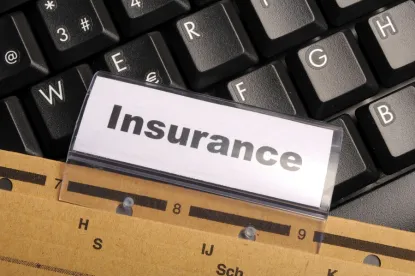The 2017 hurricane season has been a terrible one. Already, four massive hurricanes have pummeled the Southern United States, Puerto Rico, and other Caribbean locations. As food and supplement companies begin to understand the full impact that these hurricanes have had on their businesses, many will turn to their insurance to help alleviate the substantial costs resulting from damage to their property and facilities, as well as from interruptions to their businesses. In assessing the availability of insurance, a little knowledge can go a long way towards maximizing insurance recoveries and avoiding coverage disputes.
- THERE IS A GOOD CHANCE YOU HAVE COVERAGE.There is a good chance that affected companies have insurance for some or all of the property damage, loss of profits, and expenses resulting from the recent hurricanes. For food or supplement companies that make perishable goods, damage to those goods resulting from sales or shipping delays also may be covered. However, insurers might seek to limit or avoid coverage. Therefore, be cautious before taking a position on coverage or the value of property, and before making any admission about or characterizing your claim.
- YOU MAY NEED TO CONSIDER LIABILITY INSURANCE, CONTAMINATION INSURANCE, AND OTHER INSURANCES, IN ADDITION TO PROPERTY INSURANCE. Because business interruptions sometimes can result in third-party claims against your company, you may need to seek coverage under your general liability policies or other policies. Particularly in the food and supplement industries, property damage also can result in product contamination, which may implicate accidental contamination insurance. Companies should provide prompt notice under all potentially applicable policies.
- YOU MAY HAVE COVERAGE FOR LOSSES DUE TO BUSINESS INTERRUPTION. Most business property policies cover losses that occur when a company loses profits due to physical damage to its own facilities. These policies also often cover extra expenses that businesses incur to mitigate losses, potentially including expenses of shifting production from a damaged plant to other facilities.
- LOSSES FROM SUPPLY CHAIN DISRUPTIONS MAY BE COVERED. Many property policies cover lost profits and extra expenses incurred due to interruptions that block a company’s ability to obtain ingredients or components necessary to make its products, or its ability to deliver its products to the customer. This coverage may result from a supplier or a customer having property damage or a business interruption, even if your company does not. Even a disruption at a supplier’s supplier, or a customer’s customer, may be sufficient to trigger this “contingent business interruption” coverage.
- YOUR POLICIES MAY COVER FLOOD DAMAGE. Many business property policies cover both flood and wind damage, sometimes subject to special terms or limitations. Even if there are exclusions for flood damage, companies may be able to establish coverage through other covered causes.
- YOU MAY BE COVERED EVEN ABSENT PHYSICAL PROPERTY DAMAGE. Even if your facilities or offices sustained no physical property damage, you may still have coverage under most property policies if (a) your location was shut down by acts of civil authority, (b) you had a sustained inability to enter or leave your facility, or (c) there were interruptions in key services, such as power or phone outages.
- YOU MAY BE COVERED FOR THE COSTS OF PREPARING FOR THE HURRICANES. Many property policies provide coverage for costs incurred to prevent or mitigate imminent damage. Because reasonable steps taken to prepare for and minimize losses may have saved insurers money, insurers should pay for these efforts. Similarly, you may be entitled to repayment of costs incurred to mitigate damage to your facilities or to minimize a business interruption.
- SOME POLICIES CONTAIN STRICT TIME REQUIREMENTS. Many policies contain tight deadlines for complying with coverage requirements, including short time frames for providing notice and submitting proofs of loss, and time limits on when a company can sue the insurer if there is a dispute. If necessary, communicate now with your insurer to negotiate an extension or tolling arrangement.
- DOCUMENT, DOCUMENT, DOCUMENT. In the early weeks after a hurricane, many businesses will be focused on protecting and preserving their assets and working to get their businesses back up and running. Even while emergency repairs are underway, companies should carefully document all amounts. If possible, track all amounts spent or lost in categories that reflect the loss categories in your policies. It also may be beneficial to obtain insurer approvals before repair and replacement of property, keeping aware of an insurer’s potential right to salvage property. If insurers are silent or if they fail to respond to a request for approval, document that too.
- YOU SHOULD REVIEW ALL OF YOUR POLICIES AND GET HELP IF YOU NEED IT. Companies should review all relevant policies to identify potential coverage. Because there can be many pitfalls in securing insurance coverage for hurricane-related losses, it is best to consult experienced professionals early in the process, including your broker, private claims adjusters, forensic accountants, and counsel.


 />i
/>i

